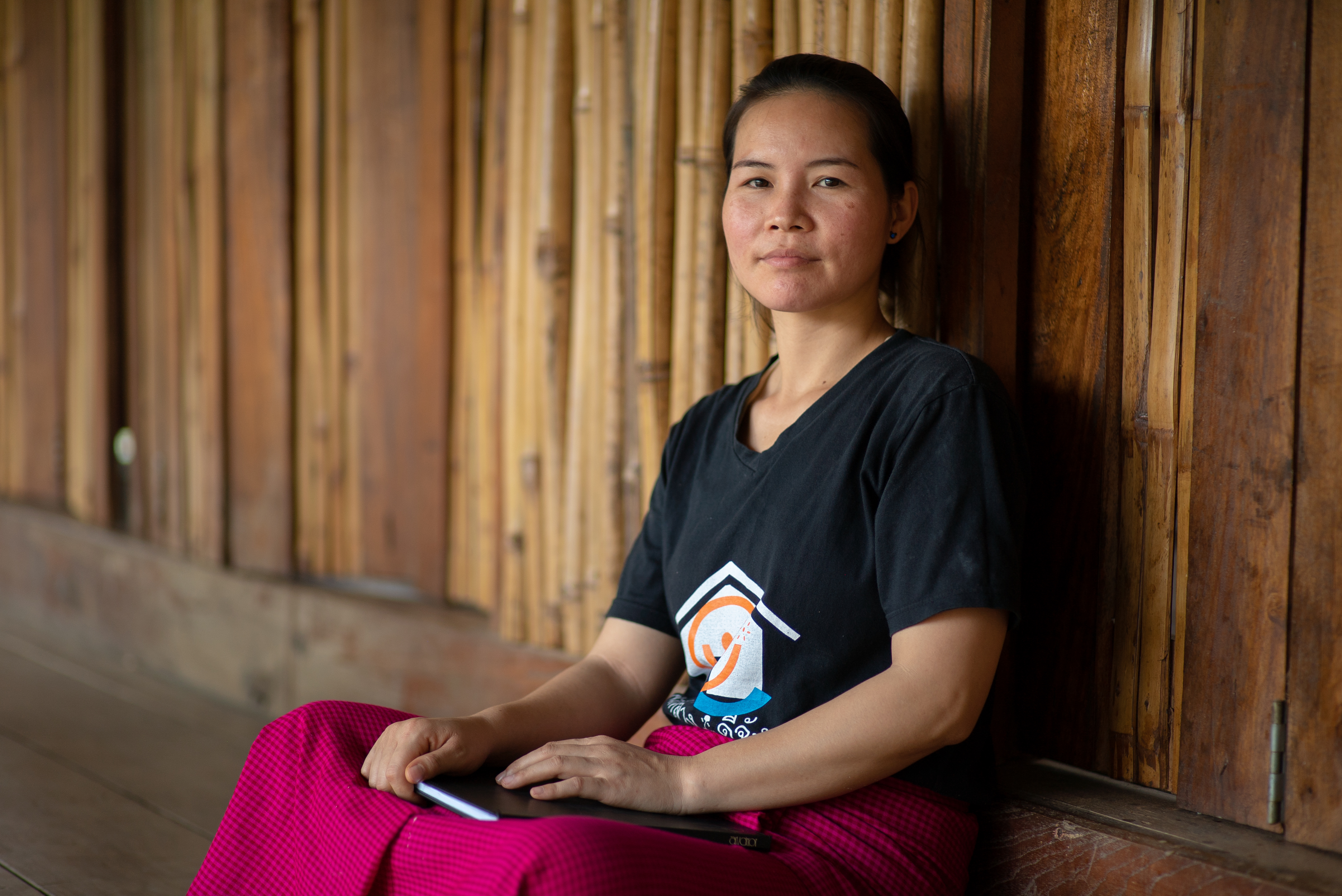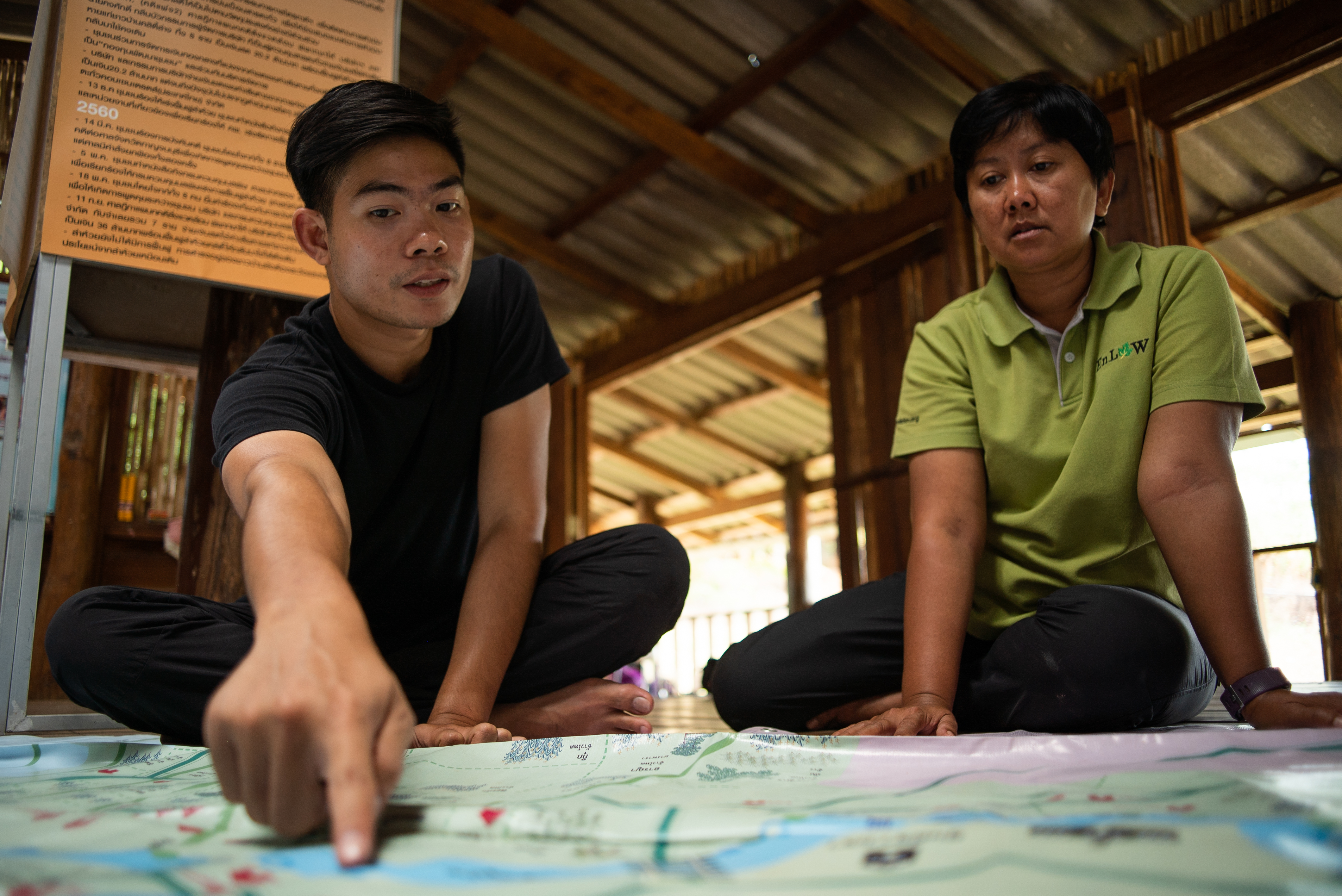This article was published more than 5 years ago.
Supaporn Malailoy understands that water is life for communities across Thailand.
As the general manager of Thai environmental foundation EnLAW, Supaporn is a champion for the land and resource rights of rural communities in Thailand. Through litigation, training, and advocacy, the lawyers and activists of EnLAW protect and promote environmental rights and empower marginalized communities to exercise their constitutional protections.
The Fund for Global Human Rights has been proud to support Supaporn and the transformative work of EnLAW since 2009.

Supaporn helped establish EnLAW in 2000 as the Environmental Litigation and Advocacy for the Wants. Though she might seem like an unlikely leader for an organization that offers pro-bono legal assistance—she never studied law—her determination and devotion to environmental justice has helped advance human rights and democratic norms, despite the risks.
Navigating opposition from corporations and restrictions from the government, EnLAW is a leader in the resource rights movement.“EnLAW was started by lawyers and NGOs who worked on environmental issues and saw that there was not a single organization working to support villagers in exercising their environmental rights,” she says.
Since then, their tenacity has demonstrated that no company or industry is too big to take on. They’ve challenged sweeping legislation that eroded environmental protections, lobbied the government to adopt sustainable practices, defied restrictive laws on public protest, and taken powerful extractive industries to court—and won.

For villagers living near Lower Klity Creek in Thailand’s western Kanchanaburi province, Supaporn and the lawyers of EnLAW are a symbol of hope in an upstream struggle.
Klity Creek, a vital water source for the local community, has been contaminated since a mining company built an ore dressing facility less than eight miles from the creek in the 1960s. The factory dumped toxic levels of lead into the water, polluting the soil and tainting livestock and fish.
For decades, ethnic Karen villagers have been poisoned by the very water they rely on for food, agriculture, and consumption. Unable to fish or farm safely, the locals have also been robbed of their livelihood. Children developed severe disabilities and locals reported symptoms of chronic lead poisoning, but complaints fell on deaf ears—until EnLAW stepped in to help.

EnLAW has been working with the villagers of Klity Creek for over a decade. With the Fund’s support, Supaporn’s team was able to offer free legal aid to the community and coordinate independent tests to measure the levels of lead in residents’ blood, soil, and water.
With the help of EnLAW and other groups, the villagers filed and won three cases—one administrative and two civil—against the company that had polluted Klity Creek and the state agency in charge of cleaning it up.
Thanks to the persistence and tenacity of the community members, Supaporn, and EnLAW, 159 villagers were awarded $1.7 million in damages and the court ordered that the mining company rehabilitate the creek. The restoration is in process, closely monitored by EnLAW and the local community.
Though work remains, EnLAW is in it for the long haul—and so is the Fund. Thanks to the tireless efforts of activists like Supaporn, the people of Klity Creek still have hope that, one day, they will enjoy their right to clean water and a healthy home.
More than ever, we need courageous, determined activists like Supaporn, who give us hope that indigenous communities can take on abusive actors and win.
Learn more about how you can help power their work.



